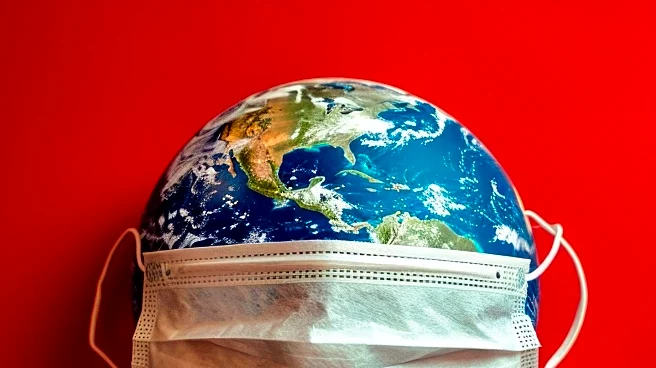What's Happening?
The four major vaccine manufacturers—GSK, Pfizer, Sanofi, and Merck—have reported declines in their vaccine businesses for the third quarter, attributing the downturn to reduced vaccination rates in the U.S.
Sanofi reported a 17% decline in sales of its COVID-19 and flu vaccines, while GSK noted a 15% drop in U.S. sales of its shingles vaccine, Shingrix. Merck faced challenges with its HPV vaccine Gardasil, and Pfizer's COVID-19 vaccine Comirnaty saw a 25% decrease in U.S. sales. The decline is linked to Health Secretary Robert F. Kennedy Jr.'s anti-vaccine rhetoric, which has influenced public perception and policy changes, including the removal of recommendations for routine COVID-19 vaccinations for healthy children and pregnant women.
Why It's Important?
The decline in vaccination rates and sales has significant implications for public health and the pharmaceutical industry. Lower vaccination rates can lead to increased outbreaks of preventable diseases, as evidenced by the rise in measles cases across the U.S. The financial impact on vaccine manufacturers could affect their ability to invest in new vaccine development and innovation. Additionally, the shift in public policy and perception may undermine efforts to maintain high immunization coverage, posing risks to community health and safety.
What's Next?
Vaccine manufacturers may need to adjust their strategies to address the changing market dynamics and public sentiment. This could involve increased advocacy and education efforts to rebuild public trust in vaccines. The industry might also explore new markets or focus on developing vaccines for emerging health threats. Policymakers and health agencies may face pressure to reassess vaccination guidelines and recommendations to ensure public health safety.
Beyond the Headlines
The broader implications of declining vaccination rates include potential ethical and legal challenges, as public health policies are influenced by anti-vaccine rhetoric. The shift in vaccine recommendations could lead to long-term changes in how vaccines are perceived and utilized in the U.S., affecting cultural attitudes towards vaccination and public health initiatives.









